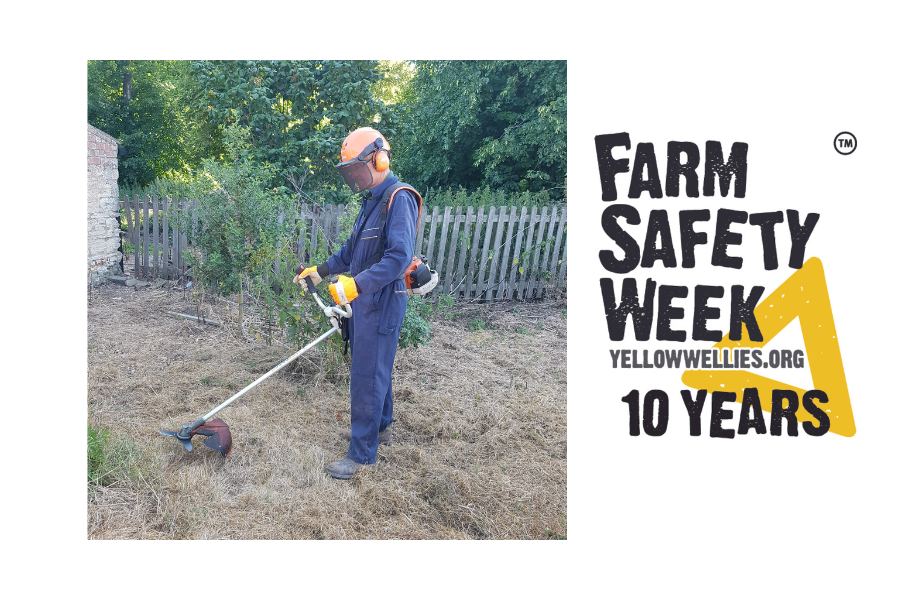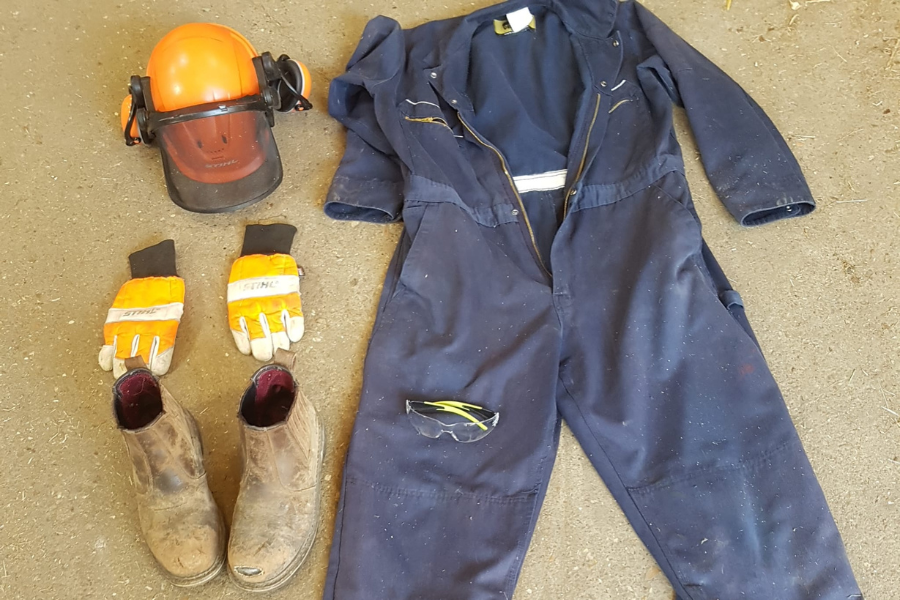From 18th – 22nd July 2022, The Farm Safety Foundation are highlighting issues surrounding farm safety and how making small changes and mindset can make a huge difference. Farming has the worst safety record, more than any other industry or sector.
According to HSE, farming equates to 18% of all workplace deaths (HSE Fatal Injuries in Agriculture, Forestry & Fishing Report in GB 2021/2022) A total of 22 farm workers lost their lives on GB farms over the past year.

When it comes to farm safety, Courteenhall Farms take great care and attention in managing the wellbeing and safety of all staff, visitors and anyone who may be present during day-to-day activities on site.
The groundskeeping and farm management team take the safety of people seriously and ensure that everyone is dressed and protected appropriately for each task they undertake.
Head groundskeeper Darron Wilks said ‘We make a point of giving each person their own set of PPE equipment, visors, gloves, goggles, ear muffs, face shields for example, that fit them so that they are comfortable and more likely to wear them’. ‘There is nothing worse than an ill-fitting helmet or a pair of gloves that doesn’t suit the purpose for the job in hand.' 'It makes the job harder and the wearer is more likely to remove if it doesn’t fit or work properly.'
In addition to each staff member having their own kit, every machine will have pieces of PPE equipment inside for use. A face shield and gloves for example. Helmets are replaced every three years or in line with industry and safety mark recommendations, especially as helmets can become brittle when exposed to heat over a period of time.
Face shields and gloves are always used when handling chemicals and a ladder is only used as a last resort when working at heights.

All PPE, including overalls and gloves are cleaned on site rather than being taken home to avoid cross-contamination. Darron mentioned ‘Nobody wants to have dirty overalls mixed in with your best shirt when being washed!’
Any near misses are reported at monthly management meetings and safety policies are reviewed regularly to ensure that modifications can be added or suggestions from team members can be considered.
A safety committee is being established amongst long-standing staff members, who can coach and advise others working on tasks, as they can identify problem areas and have gained knowledge from past experience.
A zero-tolerance approach to health and safety is operated and everyone is made aware of this.
Another important safety factor to consider is lone working. Staff talk to each other numerous times of the day so they know who is working where and how long they are likely to be. If they haven’t come back when they said they would, a phone call is made or another team member will investigate to ensure they are OK.
Staff make sure they take a tea and lunch break and Darron commented further ‘It is important to take a rest throughout the day’. ‘There is no point in working when you are tired or dehydrated as you are more likely to make mistakes or feel unwell’.
Baseball caps and sunglasses are worn during hot weather and one area that is being considered in the future is ensuring that staff apply sunscreen and only work for short periods of time in full sun.
Darron concluded ‘We all know someone who has had an accident or near miss, which makes you stop and think. We don’t want to be another statistic.'





